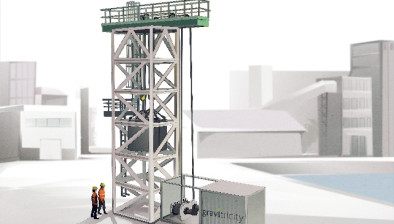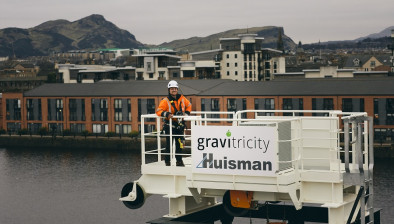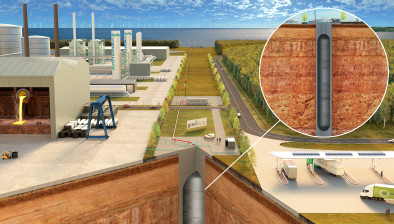Gravity-powered energy storage demonstrator successfully commissioned
Scots innovator Gravitricity has successfully commissioned its 250kW energy storage demonstrator proving the capability of its novel gravity-powered technology.
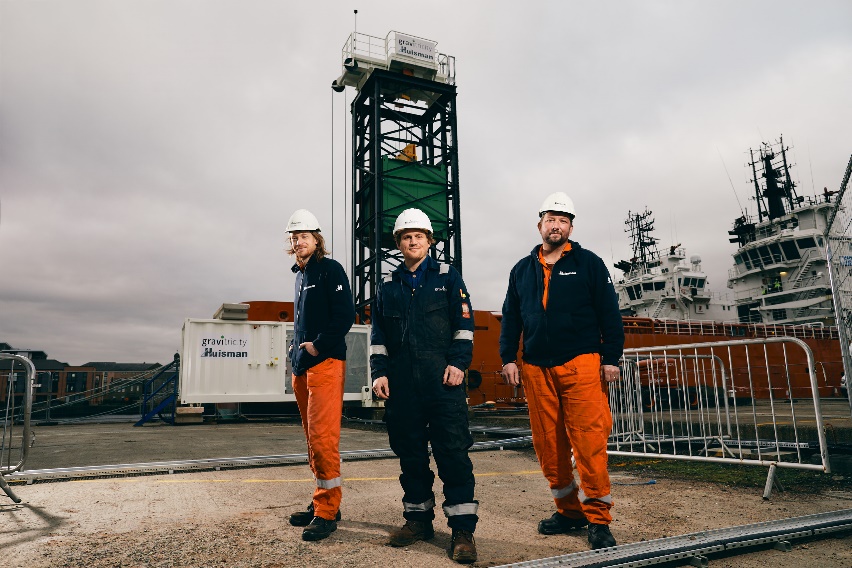
Providing a cost-effective, long-life alternative to lithium-ion batteries, without the need for rare earth metals, the demonstrator has been built above ground, whilst future commercial projects will be underground – using either decommissioned mine shafts or purpose-sunk shafts.
Gravitricity’s ‘battery’ works by raising one or more heavy weights in a deep shaft and releasing them when energy is required.
A full-scale 8MW project would store enough electricity to power 5000 homes for an hour.
In a series of tests – carried out on their grid-connected 250kW demonstrator at the Port of Leith in Edinburgh – the company successfully raised and lowered two 25-tonne weights to generate full power and verify the system’s speed of response.
The £1 million, 12-metre-high test rig has been funded by Innovate UK and has been delivered in tandem with Glasgow-based controls specialist ISC and industrial partners, Dutch winch manufacturer Huisman.
Gravitricity now plans to roll out the technology in series of full-scale 4-8MW projects in disused mine shafts worldwide.
“These tests confirm our modelling and show that gravity energy storage is a serious contender in the global energy storage market,” said company managing director Charlie Blair.
“We’ve proven we can go from zero to full power in less than a second – which can be extremely valuable in the frequency response and back-up power markets – plus our ability to continuously vary power output dependent on demand. In the coming months we’ll be running tests with the two single weights, dropping one after the other to verify smooth energy output over a longer period.
“A key feature of our full-scale projects will be their long life. Once built, our system can last for over 25 years, with no loss in output or degradation over time. This makes gravity storage cost-effective. And unlike batteries, we have no reliance on rare metals such as cobalt and nickel which are becoming increasingly scarce in the global drive to electrification,” Blair added.
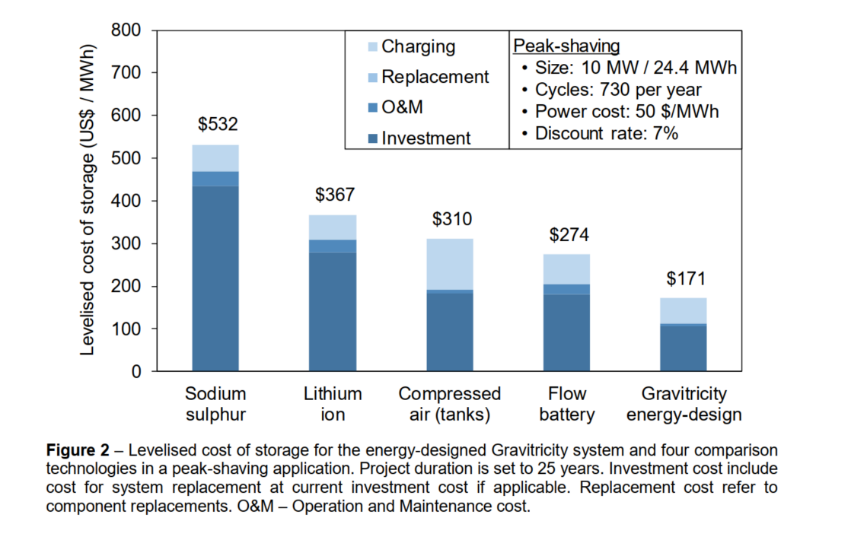
Already the storage pioneers are in advanced discussion with mine owners in the UK, Scandinavia, Poland and the Czech Republic to select their first European projects. Whilst in South Africa, they are working closely with mine operator United Mining Services to identify potential schemes in a programme funded by Innovate UK’s Energy Catalyst programme.
“In the UK we are considering brownfield sites and are also looking at the potential to sink a new-purpose built shaft in partnership with a major British civil engineering firm,” Blair concluded.
In a 2019 study, analysts at Imperial College calculated that a Gravitricity system could store electricity at half the lifetime cost of lithium-ion.
This leaves the firm ideally placed to tap into the growing energy storage market, which Bloomberg New Energy Finance estimates will be worth $620 billion globally up to 2040.




















